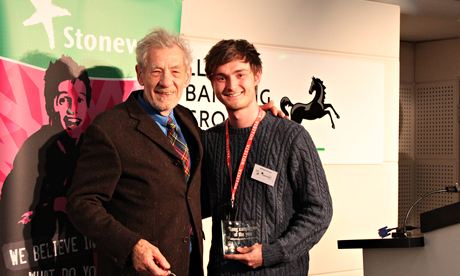
When searching the word "gay" on the internet, the second suggestion on the most used search engine in the world is a "gay test".
Propped up by an array of negative stereotyping and homophobic naming practices, a "gay test" site will judge your pending sexuality based on how many musicals you've been to see this year and how much you spend on a hair cut. Given the current prominence of the internet as a tool for young people to seek advice on LGBTQ issues, it's a pity and a problem that you have to wade through a vast sea of prejudice, which can often make it impossible to locate legitimate sources of support.
Research carried out in 2012 by Stonewall revealed that 99% of students had heard the word 'gay' being used in a negative way. The study also found that 23% (almost a quarter) of young lesbian, gay and bisexual people had tried to take their own life at some point. When you compare this to the percentage of all young people who have attempted suicide (7% - Samaritans research) it is clear to see that whatever work is being done to support LGBTQ young people, it's simply not enough.
The environment in many schools is not indicative of a secure and supportive learning space, as students can feel rejected by a curriculum that appears to be non-inclusive. This in turn, creates a taboo in society where young people struggling to come to terms with their sexuality are segregated and forced to seek information elsewhere.
At the age of 19 I came out. Despite having had a strong idea of my sexual orientation since 15, the stigma around being gay as well as the stereotypical representation of gay men in the media made it impossible for me to comfortably identify as a gay person. I approached a local LGBT-friendly football team and from there, was able to meet like-minded individuals with whom I shared similar interests. I was greeted by a sense of inclusion that developed into some very strong friendships.
Being a part of the Youth Volunteering Programme with Stonewall has been an excellent opportunity for me to make a positive change in my community. Working closely with local schools to identify homophobic bullying and language, I learned several things about how young people can get a better understanding of how to embrace their sexuality without being subject to discrimination.
In schools, some teachers aren't sure how they should respond to homophobic language and some student intolerance is a result of the lack of information about the effects that homophobic bullying (there is a distinct lack of teaching in the curriculum on sexual identity). Consequently, the lack of information that teachers receive results in students not having access to valuable knowledge. Training should be sought by schools and provided by outside sources that have experience in tackling homophobic bullying. This would then help aid and avoid isolation of students that identify themselves as lesbian, gay, bisexual or transgender.
For those who are in the process of discovering their orientation or sexual identity, there are networks available that can offer support and guidance. Websites like Young Stonewall offer a regional database of LGBTQ organisations, and Stonewall will be launching their Coming Out Guide for Young People at their annual Education for All conference on July 4 in London, which will subsequently be available to download for free from the website. Alternatively, a lot of young people who are stuggling to come to terms with their sexuality may prefer more general sources of support such as Childline.
Coming out isn't always easy, but as clichéd as it sounds, talking to friends and family does make the process a lot less daunting. Personally, after coming out to one friend, I was much more confident repeating the process as many times as I needed to.
In all honesty, coming out opened doors to so many different experiences and opportunities. If I was still 'in the closet' I would be missing out on chances that I may not have previously been able to access. The best advice I can give to anyone who is thinking about coming out is that no matter what sexuality or gender you identify with, there is always support available for those who seek it.

